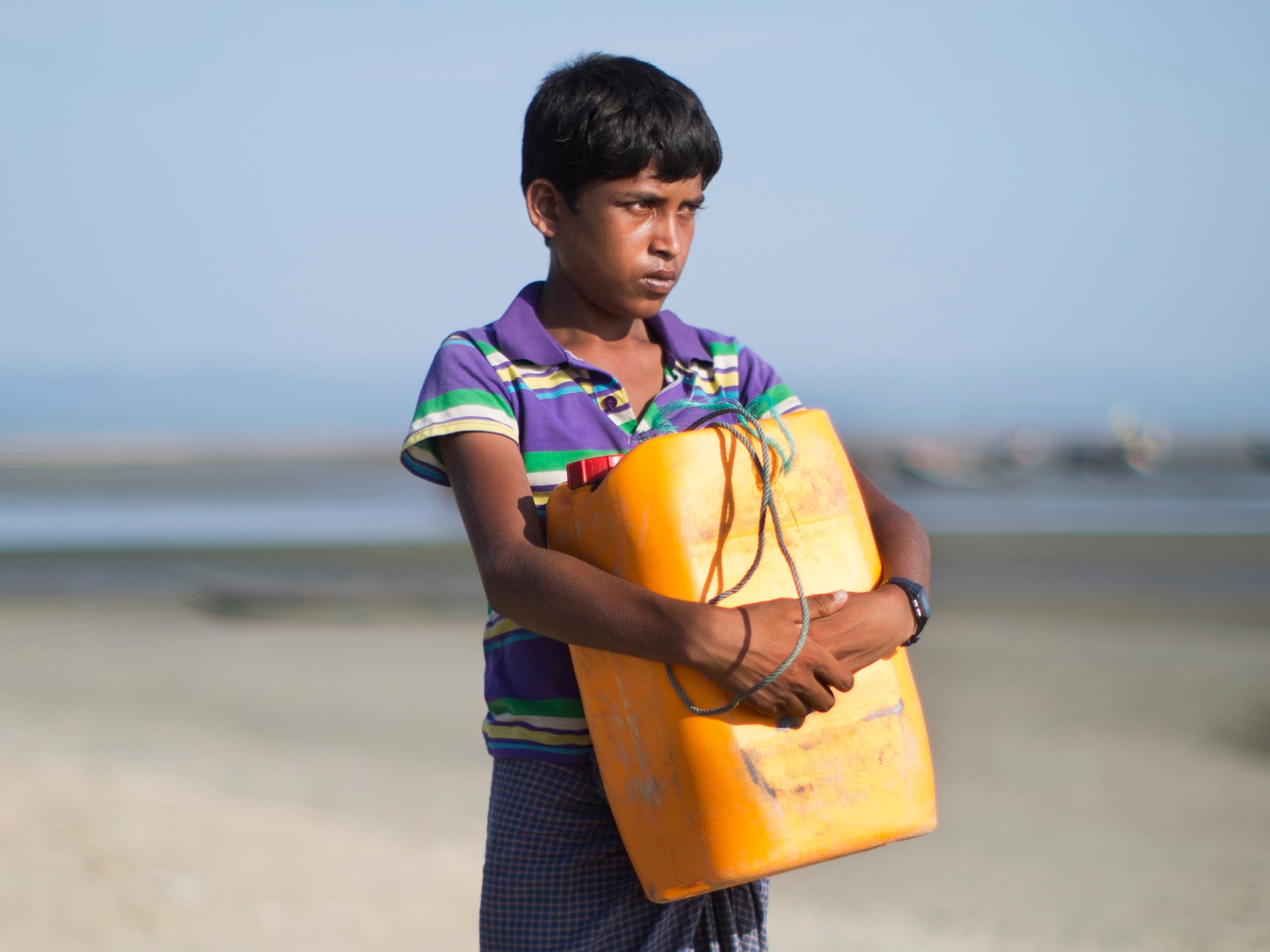Teenage Rohingya Muslim boy who cannot swim floats on oil drum across sea from Burma to Bangladesh
'I was so scared of dying,' says 13-year-old Nabi Hussain

Your support helps us to tell the story
From reproductive rights to climate change to Big Tech, The Independent is on the ground when the story is developing. Whether it's investigating the financials of Elon Musk's pro-Trump PAC or producing our latest documentary, 'The A Word', which shines a light on the American women fighting for reproductive rights, we know how important it is to parse out the facts from the messaging.
At such a critical moment in US history, we need reporters on the ground. Your donation allows us to keep sending journalists to speak to both sides of the story.
The Independent is trusted by Americans across the entire political spectrum. And unlike many other quality news outlets, we choose not to lock Americans out of our reporting and analysis with paywalls. We believe quality journalism should be available to everyone, paid for by those who can afford it.
Your support makes all the difference.A 13-year-old boy who is unable to swim, used an oil drum to make the two-and-a-half mile sea crossing from Burma to Bangladesh, amid escalating violence against a Rohingya Muslim minority
Nabi Hussain strapped cooking oil containers to his chest and used it to float to the port of Shah Porir Dwip.
“I was so scared of dying,” the teenager said, adding that he had passed countless bodies on the journey.
The fourth of nine children Nabi grew up in the mountains of Burma, where his father was farmer who grows paan, the betel leaf used as chewing tobacco. He never went to school.
The family were forced to flee after the Burmese military moved in on his village. The last Nabi saw of it, all the homes were on fire.
It came as part of a brutal crackdown by security forces in country after some of their members were attacked by Rohingya insurgents in the Rakhine province, in August.
The military has been accused of killing men, raping women and burning homes and property.
While Nabi's family were able to reach the coast they had no money for a boat or a smuggler to get them to Bangladesh.
Surrounded by other refugees, there was a swiftly dwindling supply of food and water.
On the fifth day, Nabi and his parents decided that he was to cross the sea to Bangladesh.
So on the 3 November he joined 23 other young men on the short but perilous journey.
He could not swim, so he was placed in the middle of a group of three men who were tied together with rope. They had cooking oil containers strapped to their bodies.
Now, he is one of over 40,000 unaccompanied Rohingya Muslim children in Bangladesh.
“I want my parents and peace," he said.
Burma has been condemned by the international community for its treatment of the Rohingya community.
Downing Street likened the Burmese military’s violent actions to “ethnic cleansing.”
The UN Security Council also called on Myanmar to rein in its military campaign in Rakhine state and allow hundreds of thousands of Muslim Rohingya driven from their homes to return, last week.
The council expressed “grave concern” over human rights violations, “including by the Myanmar security forces” against the Rohingya such as killing, sexual violence and burning of homes and property.
Join our commenting forum
Join thought-provoking conversations, follow other Independent readers and see their replies
Comments